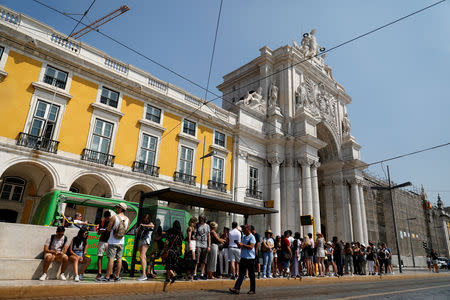More people moved to Portugal than left in 2017, reversing trend
LISBON (Reuters) - More people moved to Portugal last year than left for the first time since 2010, as the economy posted its strongest growth in nearly two decades, a report by the government's migration agency showed on Tuesday.
The numbers showed efforts to attract foreigners, including 'golden visas', tax exemptions and a booming tech sector, are paying off. But the immigration figure was still too small to prevent Portugal's population from falling because of ageing.
The southwest European country's population has been in sharp decline since 2007, with the number of births failing to make up for the number of deaths. Around 21 percent of the country's residents are aged over 65, the fourth-highest proportion in the EU.
Solving the growing problem by attracting younger migrants, both foreigners and Portuguese living abroad, has been one of the government's key priorities since it came to power in 2015.
The report showed 36,639 people moved to Portugal last year, the highest since 2012, and 31,753 left, switching the balance into positive territory. In 2016, 38,273 people left the country and 29,925 arrived.
Overall, the population of foreigners rose to 421,711 last year, up from 397,731 a year earlier. Most migrants come to Portugal from Brazil, Cape Verde and Ukraine. But the number of French, British and Italians is rising.
"Portugal has witnessed a significant increase in immigration so the phenomenon is likely to cease to be part of the demographic deficit problem and become part of the solution," Rui Pires, who leads the agency, told reporters.
The natural rate of decline in Portugal's population last year - deaths minus births - was 23,432.
(Reporting by Catarina Demony; Editing by Axel Bugge and Mark Potter)

 Yahoo News
Yahoo News 

